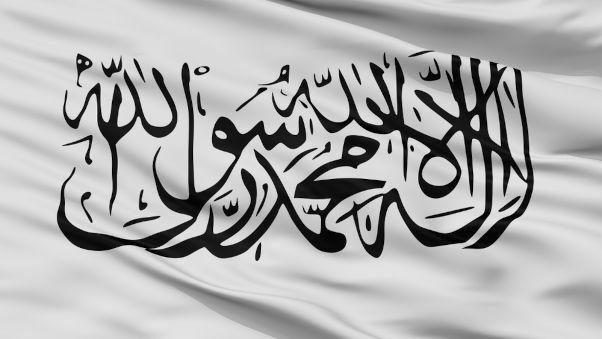Alexander VI, or RodrigoBorgia, is the name of the pope who was at the head of the Catholic Church from August 1492 to August 1503. To this day, he is considered one of the most corrupt popes in the history of the Church. He used his influence during the papacy to perpetuate the power of the Borgia family through nepotism. Furthermore, he was in conflict with the secular authorities of the time and one of his sons – Caesar – was feared by all because of his violence.
Origins of Rodrigo Borgia
Rodrigo Borgia was born on January 1st, 1431 or 1432 (there are doubts among historians about the year), in the city of Xátiva, Spain. He claimed that his family was descended from a branch of the Aragon dynasty. However, German historian Volker Reinhardt claims that this is not true according to research on the genealogy of the family.|1|. The Borgia family was considered part of the nobilitysmaller, for he had served in positions of local influence.
The Borgia family's influence grew from the social climb carried out by Rodrigo's uncle, Alonso Borgia. Alonso became a cardinal in 1444 and years later he was elected pope of the Church and became
callistoIII. As pope, Callisto did his best to increase the influence of the Borgia family.Under the influence of his uncle, Rodrigo Borgia moved to Italy in 1449. Callisto III made his nephew a cardinal in 1456, vice-chancellor in 1457, as well as being bishop of Valencia and captain of the papal troops. At that time Rodrigo Borgia's influence grew.
OPapacy
In the following decades, Rodrigo Borgia did his best to maintain his influence in the political circles of the Catholic Church. Despite seeking to maintain his image, he did not mind being warned by Pope Pius II because of his behavior, which was not in keeping with ecclesiastical celibacy. Rodrigo started a family with Vanozza dei Cattanei, with whom he had four children: Caesar (born 1475), Giovanni (born 1476), Lucrezia (born 1480) and Jofre (born 1481). Another well-known lover of Rodrigo was Giuliafarnese.
Rodrigo Borgia was only elected pope in 1492 at the conclave held after the pope's death Innocent VIII. Historian Volker Reinhardt says that the election responsible for electing Rodrigo was purchased in the early hours of August 10th to 11th with the help of his ally, Cardinal Ascanio Sforza. Rodrigo's biggest opponent in the elections was Giuliano della Rovere, who went into exile from Rome after the defeat for fear of reprisals from Alexander VI.
Do not stop now... There's more after the advertising ;)
The ten years of Alexander VI's papacy were marked by political maneuvers with the leaders of the time, corruption and many controversies surrounding the murder of opponents by poisoning. It is also speculated that Caesar killed his brother Giovanni in 1497. Alexander VI was accused numerous times of simony (sale of ecclesiastical offices) by its opponents and made use of the nepotism by naming his son Caesar cardinal in 1493.
He was instrumental in determining the division of America, which had been “discovered” in 1492 in the expedition of Christopher Columbus. The agreement with the Spanish Crown stipulated benefits to his son Juan Borgia, who was recognized as Duke of Gandia. In exchange, the Spanish Crown received from the pope a bull authorizing them to possess all the lands of the new continent. However, later, Spain would negotiate these terms separately with Portugal during the Treaty of Tordesillas, carried out in 1494.
Despite numerous conflicts with secular authorities, one of Alexander VI's greatest challenges was the Dominican priest Girolamo Savonarola. The Dominican priest challenged the power of the pope and claimed that he was God's mouthpiece. He denounced for the city of Florence that the papal election of 1492 had been purchased. Alexander VI and Savonarola's conflict ended in 1498, when Savonarola was killed:
Savonarola's fate was set in Florence. The members of the [Florence] government who had been drawn for the months of May and June were largely hostile to him. They had the great prophet tortured to bring out supposed confessions. He would have confessed that, from the beginning, everything was just a lie and falsehood: the messages of God, the communion with the angels, everything invented and imagined. […] On May 23, 1498, Girolamo Savonarola was strangled and then burned|2|.
Alexander VI died on August 18, 1503, after spending a week sick with a constant fever and sporadic vomiting. It has been speculated that his death was by poisoning while drinking a glass of wine poisoned by mistake, however, it is now raised that Alexander may have contracted malaria. Alexander's death resulted in the downfall of the Borgia family, as over 12 years of papacy the Borgias had accumulated enemies throughout Italy.
|1| REINARDT, Volker. Alexander VI – Borgia: The sinister Pope. São Paulo: Editora Europa, 2012, p.19.
|2| Idem, p.157.
By Daniel Neves
Graduated in History



